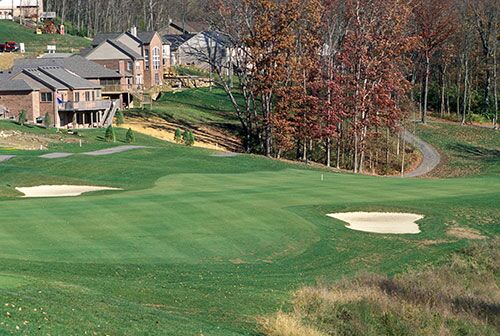Last week six-year-old Ella Shultz was overjoyed when the Make-A-Wish foundation promised to build a barn style playhouse in her backyard, but her family’s Raymore, Missouri Homeowners Association (HOA) covenants expressly forbade the structure. The HOA denied permission to build. The family reeled. Neighbors couldn’t believe it either, so, after getting nowhere with the HOA, they kicked off a publicity blitz for the small cancer patient. #SaveEllasWish ended over the weekend with renewed assurances, this time from the HOA, that Ella Shultz will have that playhouse after all.
Homeowner’s Association rules and contracts are not set in stone. They are in place to reflect the wishes of the community, not just its developer. If a majority of the neighbors adopt a point of view counter to the covenants, they must speak out. Of course, the most expedient way to protect interests and avoid headaches is to ask a lawyer to review HOA documents before purchasing property in the first place. Since the developer’s attorney typically writes the covenants, it may contain rules and loopholes that homeowners would never anticipate. Additionally, in older communities, the covenants may be outdated or even in violation of newer laws protecting the rights of property owners.
Parks and green space: Not guaranteed
If the covenants and restrictions make no mention of neighborhood land and green space, it is unreasonable to expect those amenities will always exist or even be maintained. Most HOA contracts delve into mind-numbing detail about green or shared space. If yours does not, consider it a flag and follow up with your attorney.
Neighborhood golf courses: Not guaranteed
Many homeowners have never considered that their neighborhood golf course, with its expansive greens, is permitted as a commercial enterprise, not parkland. The golf course is not a guaranteed neighborhood amenity. The simple act of paying a premium for a property with a golf course view does not ensure the golf course will always be there in prime condition.
The economic downturn was challenging for neighborhood golf courses. Many failed to turn a profit and were forced to shutter across the country. Now that the economy has regained momentum, many owners of failed golf courses would like to try a new venture on that land. When met with resistance, like in Phoenix last summer, one developer simply halted grounds upkeep in the hopes, some theorize, that the community would grow so weary of brown space views and razor wire they would be more amenable to the installation of some other commercial enterprise in its place, like an office park or restaurant.
“So many people misunderstand this, but golf courses are an ongoing business venture. It’s a non-residential enterprise going on in the middle of a residential neighborhood. We could see a golf course owner come to a condo complex to say, ‘You know what? We’re putting a 7-Eleven in here instead.’ These are the kinds of issues that will likely come up as owners grapple with how to move forward,” says Dan Mantzaris, a partner with DeBeaubien Knight Simmons Mantzaris & Neal LLP, a LegalShield Provider serving the Central and North Florida.
Mobilize neighbors
Mr. Mantzaris encourages neighbors to initially approach developers and HOAs with a spirit of collaboration before calling in lawyers like him. A neighborhood letter-writing campaign or petition drive is a good place to start. Many people underestimate the potential impact, but Mr. Mantzaris has seen this strength-in-numbers approach succeed. Letters or petitions should be directed to the developer in question and the HOA leadership. Clearly convey requests and keep the tone respectful, he says.
If the developer or property owner indicates an unwillingness to compromise or ignores neighbors, they should escalate the campaign, this time looping in lawyers, local elected and appointed officials and local reporters who cover the neighborhood beat.
“My firm can make a difference. We will write letters to the city or HOA demanding upkeep. Clients get immediate results with letters like that. Municipalities certainly don’t want these abandoned golf courses just sitting there,” says Mr. Mantzaris.
Mr. Mantzaris also says LegalShield provider firms like his stand willing to help homeowners fight for their rights when HOA covenants feel too restrictive, are outdated, or when neighborhood amenities like golf courses have fallen into shambles. “If covenants have language referencing a right to be part of a golf course community, then neighbors have a good breach of contract action against the people who sold the property to them.”
The case of Ella Shultz and the dream playhouse likely would have turned out differently if her parents had kept quiet and tried to deal with the HOA on their own. “The key is to come together with neighbors and communicate well when your HOA covenants seem out of line or when you feel they are not being honored,” says Mr. Mantzaris.
One barn playhouse under construction, and its gleeful owner, evidence the strength found in numbers.





